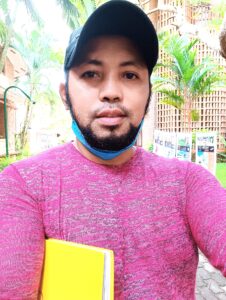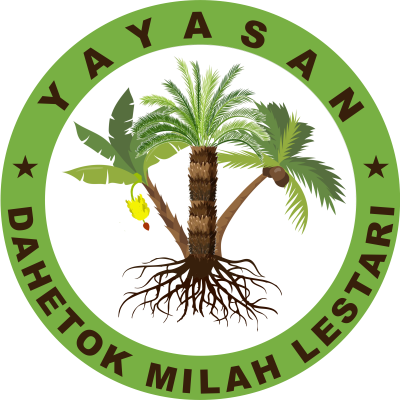“Fresh air and blue skies, accompanied by chirping birds, shady trees, and dense forests” was the view in my grandma’s village, which is 40 km from Merauke. Spending school holidays in the town felt like living in heaven. That was my childhood experience, more or less 30 years ago.
Merauke. Spending school holidays in the town felt like living in heaven. That was my childhood experience, more or less 30 years ago.
However, now everything has changed. In December last year, I visited and saw that the beauty that I used to feel was now almost gone. The sound of chainsaws wailing in the middle of the forest was caused by people cutting down trees. The birds we used to find in the village now don’t know where to go.
Rice paddies replace the dense forest surrounding the village. The sago trees that used to line the river banks are no longer there. Because people no longer plant sago trees. Sago, one of the staple foods of the indigenous Malind people, is very sacred in the life of the Gebze clan.
In the past, we could still find deer and wild boars on the outskirts of the village, but now they are all gone. If it continues like this, the city of Merauke will lose one of its typical animals, the deer.
Born in the city of Merauke on Papua Island, I could observe the increased environmental damage happening in my region. Moreover, when Merauke was designated as the center of the national rice granary, almost every place we would meet had rice fields. This, of course, affected the indigenous Marind community too. Even in my grandmother’s village, the indigenous people were ‘forced’ to grow rice.
Before coming to Kanthari, I thought this was the best way to see the indigenous Malind have a prosperous life by growing rice. Indeed, in the short term, they will get more money so their children can be educated well. However, for a long time, it leads to depletion and degradation of the topsoil and causes more harm than good.
In about two months, I understood that modern agricultural concepts would not solve the welfare problems of the indigenous people. Talking with friends from Africa and Latin America widened my horizons. My turning point in understanding the importance of organic farming was when Sabriye challenged me to look at indigenous people’s ancient and proven agricultural methods. They should be proud of what they have. They had excellent traditional ways of farming that were in harmony with nature conservation.
I began to reflect and asked myself: Why should I impose the concept of modern agriculture on traditional society? Isn’t it true that if they follow the pattern of contemporary agriculture, I will uproot them from their roots? They will no longer be proud of what they have.
I believe that indigenous Papuans will benefit more when they preserve nature and culture by cultivating local and medicinal plants and teaching the younger generation of Papuans to continue to apply traditional farming methods or systems that are more focused on environmental conservation. Paradise will be re-created when they can preserve the environment and the natural surroundings, not cut down trees, and take care of wildlife. I believe in the concept of permaculture, or a consciously designed landscape, which can imitate patterns and interactions that exist in nature while producing food, fiber, and energy to meet local (community) needs.
